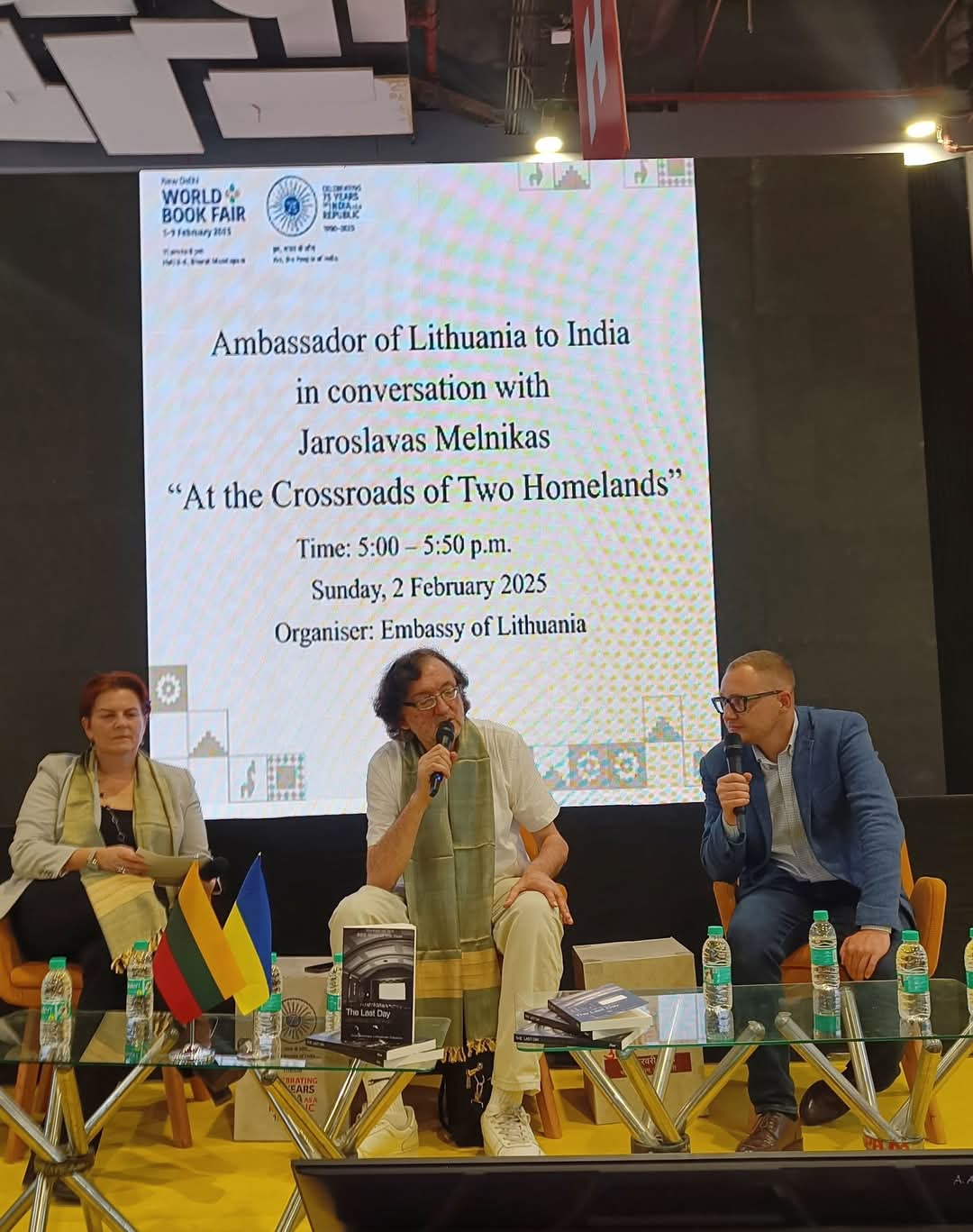Searching for the ‘I’ with Jaroslavas Melnikas

At the recently concluded New Delhi World Book Fair, Lithuanian-Ukrainian author Jaroslavas Melnikas made a powerful case for reading, even in this digital age. “Language is a tool for us to understand each other. In today’s social media age, you have videos that are devoid of any language. But language, particularly through reading, wakes up a different part of the brain. And that stimulates your imagination. When you are reading, you have to be alone and engage your imagination. And through reading you can find the ‘I’ in you, like you would through spiritual practice”.

Melnikas’ “The Last Day” – a translated collection of his Lithuanian short stories – that was unveiled at the book fair, certainly is a journey to discovering that spiritual ‘I’. In the first story of the same name as the book, people discover a ‘Book of Fates’ that details the exact date and time of everyone’s death. The unbelievable discovery changes people as they grapple with this newfound knowledge about their end. Whole new perspectives take root on life with going away parties being organised for people who want to sign off with a bang.
But then the ‘Book of Fates’ is suddenly found to be imperfect. Exceptions are discovered, finally leading to the rejection of the book as a definitive gospel. But does life truly change with these upheavals? Do the basic necessities and responsibilities of living go away? Certainly not. So, is knowing one’s date and time of death in advance truly worth it?
Then in “The Grand Piano Room” Melnikas takes us into the surreal world of Jura who suddenly finds that his favourite rooms in his house are disappearing one by one. It starts with Jura’s Grand Piano Room that vanishes into thin air. Then the painting room, and so on. Everyone else in Jura’s family seems to be inert to these fantastical changes. But Jura is convinced of the rooms’ existence even as he tries to make peace with the changes. Until he can no longer hold it in when he realises he has been living in a cramped barrack with tens of other people.
“The Grand Piano Room” fits as a perfect allegory to the situation faced by Ukrainian victims of war today. One moment, you are basking in the privileges of life, your own house, with your favourite grand piano and art canvases. The next moment you are forced to abandon it all because war is foisted on you. Overnight you become a refugee in your own land, trying to make sense of this cruel fate. You hold on to the few rays of memory that connect you to your past life. Your Grand Piano Room, your wife’s dressing room, the smell of the paint from your artwork. Given Melnikas’ Ukrainian roots, a better context for victims of Russia’s ongoing aggression could not have been found, whether the author intended it or not.
Melnikas, whose book is being translated into Hindi, also expressed his views on the politics of language. “Right now for us in Ukraine, Russian is a tool of aggression because it is the language of the aggressor. Ukraine has actually faced decades of forced Russification, where Russian language was imposed or compelled on us through different means. For example, my brother’s wife used to speak Russian before the start of the war in 2014. That’s because her parents were Ukrainian doctors and when they came to Kyiv they realised that speaking Ukrainian at that time meant you were a nationalist. This was the case throughout the Soviet Union in universities and other institutions. So they encouraged my brother’s wife to speak Russian so that she would have an easier life. But she stopped speaking Russian after Russia began the war in 2014 in Donbas and took over Crimea.”
Melnikas concludes, “So, yes, language can be a tool to understand each other provided it is not imposed. If all languages can flourish equally, without any imposition, as they do in multilingual India, then languages can be a bridge. But that’s not what Russia has tried to do in Ukraine, and therefore Ukrainian language has seen a reassertion”.
Disclaimer
Views expressed above are the author’s own.
END OF ARTICLE





